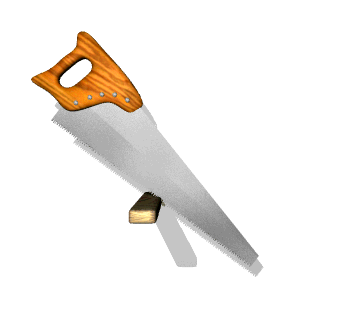Is Your Job Search Saw Sharp or Dull?
One of my favorite books is The Seven Habits of Highly Effective People by Steven Covey.
Over the past two decades I have constantly referred to this book for insight and personal growth. Covey describes one of the habits effective people embrace as “Sharpening the Saw’”.
Sharpening the Saw is the process of becoming better, learning more, seeking knowledge to improve what you do. It’s a life-long desire to improve yourself through deep learning, uncovering best practices, learning from others, adapting the techniques and stories you find on blogs, books, workbooks, iTunes, YouTube, and other sources.
Through an informal survey of thousands of executives and managers conducting a job search – less than 10% are investing time to “Sharpen their Job Search Saw”
Why? Does this seem dysfunctional?
It’s NOT brain surgery – there is a wealth of material out there that is both inexpensive and free – why are the vast majority of job seekers NOT taking advantage of it?
Let’s take the content Brad and I publish on Job Search. I’m biased – but I do think we offer some of the very best tools, techniques, methods, and framework for implementing job search best practices. Our ecommerce site offers a wealth of job search materials that are easy to use at a price that is embarrassingly low.
Layered on top of some of our kits, workbooks, audio, and other tools is a vast archive of FREE tips, tools, templates, and audio. Why do most job seekers NOT take advantage of the inexpensive best practice tools to improve their job search. Okay – forget inexpensive tools – let’s just talk about the FREE content Brad and I publish. Wait – Brad and I are not the only job search experts out there writing, recording, and publishing great material on improving your job search.
There are some extraordinary experts on personal branding, resume writing, cover letters, interviewing, and networking. Yet, less than 10% of all job search executive and managerial candidates would be able to identify who are the top three writers/publishers on personal branding for a job search, who are the very best content providers for networking?
If you are in a job search, how could you not know this information – it’s because you are not continuously Sharpening the Job Search Saw.
Let’s agree you will begin to Sharpen the Job Search Saw from this point forward – no more excuses about not having time or resources to improve your job search. Here are 5 immediate things you can do to Sharpen the Job Search Saw:
- Listen to our FREE Audio Programs on Job Search from our weekly Radio Show
- Test drive our Job Search Workbook for the cost of shipping
- Get the Self-Assessment Scorecard on Evaluating Your Job Search
- Subscribe to this blog to stay up-to-date on all our latest audio releases, new templates, and tips on how to implement the Career Success Methodology in your job search.
- Try our Home Study Job Search Kit to cut in half the time it takes to complete your job search – if you’re not completely satisfied – return it
Don’t wait another day to start Sharpening Your Job Search Saw!
Barry Deutsch






